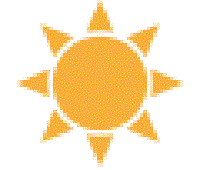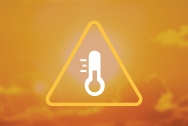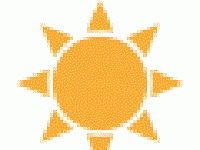WITH a heat warning issued on Tuesday by Environment Canada, advising of increasing temperatures this week, medical health officers for Fraser Health and Vancouver Coastal Health (VCH) on Wednesday reminded residents to take precautions to protect themselves and each other from the heat.
“We are not expecting this week’s temperatures to reach the levels we experienced during the extreme heat event at the end of last month, but consecutive days and nights of high temperatures do pose a risk of heat-related illness,” said Dr. Michael Schwandt, Medical Health Officer for VCH.
The heat warning has been issued for the Fraser Valley, Howe Sound, Metro Vancouver and the Sunshine Coast. It advises that a building ridge of high pressure will lead to rising temperatures for Thursday and into the weekend. Daytime highs near 30 degrees Celsius are forecast Thursday through Sunday morning with slightly cooler daytime temperatures expected near the water.
“Heat stress can pose an immediate danger to health. If you are experiencing any symptoms, it’s important to get out of the sun, find a cool location and hydrate,” said Dr. Emily Newhouse, Fraser Health Medical Health Officer. ”Remember to check in with older people who may begin to feel unwell as temperatures remain warm this week. You can help by checking if they are able to stay cool and calling for medical assistance if appropriate.”
The heat warning also advises that overnight lows will also rise into the mid to upper teens. “In this part of the province we have historically relied on cooler nights to help homes and buildings cool down, and to help us recover from the health impacts of daytime heat. High indoor temperatures can be especially dangerous for older adults and those with chronic conditions,” said Dr. Schwandt.
If indoor temperatures are too high, even with windows and doors open, consider moving to a cooler environment. Otherwise, sleep in the coolest area of the home possible, and keep water by the bedside to drink through the night.
Coping with heat
There are a variety of mild to severe symptoms linked with heat-related illness, including thirst, dizziness, confusion, weakness and fainting or collapsing. Medical Health Officers remind Lower Mainland residents to take precautions to protect themselves and others from the heat, including:
Check in on others
- People living alone are at high risk of severe heat related illness. Check regularly on older people, and those who are unable to leave their homes, for signs of heat-related illness.
- If others are unwell, help move them to a cool indoor or shady space, help them get hydrated and call for medical assistance if appropriate.
Stay hydrated
- Drink cool non-alcoholic beverages (preferably water) irrespective of your activity intake. Don’t wait until you are thirsty.
- If your doctor generally limits the amount of fluid you drink or has you on water pills, ask about increasing the amount of water you can drink while the weather is hot.
Keep cool
- NEVER leave children or pets alone in a parked car. Temperatures can rise to 52°C (125°F) within 20 minutes in an enclosed vehicle when the outside temperature is 34°C (93°F). Leaving the car windows slightly open or “cracked” will not keep the inside of the vehicle at a safe temperature.
- Seek out an air-conditioned facility (such as a shopping centre, library, community centre, restaurant, or a residence of friends or family).
- Use public splash pools, water parks or pools or take a cool bath or shower.
- At high temperatures, fans alone are not effective. Applying cool water mist or wet towels prior to sitting in front of a fan is a quick way to cool off.
- Dress for the weather by wearing loose, light-weight clothing. Protect yourself from the sun by wearing a wide-brimmed hat and sunglasses.
- Keep your home cool. Open windows, close shades, use an air conditioner (if you have one) and prepare meals that do not require an oven.
- Avoid sunburn, stay in the shade or use sunscreen with SPF 15 or more.
- Avoid tiring work or exercise in the heat. If you must exercise or conduct strenuous work, drink two to four glasses of non-alcoholic fluids each hour. Limit day time outdoor activity to early morning and evening. Employers should consider delaying or modifying outdoor work during high heat, and providing for hydration and frequent cooling breaks following WorkSafeBC guidance when work continues.
Get informed
- Listen to local news and weather channels.
- Visit VCH.ca for more information about the health impacts of heat.
- For more information on heat-related illness, call HealthLink BC at 811.
- Fraser Health Virtual Care allows you to connect with a health professional. You can call 1-800-314-0999 or use the web chat from 10 a.m. to 10 p.m. seven days a week at www.fraserhealth.ca/virtualcare
READ ALSO:
http://7zi.e17.mywebsitetransfer.com/heat-warning-for-b-c-people-urged-to-take-precautions/












